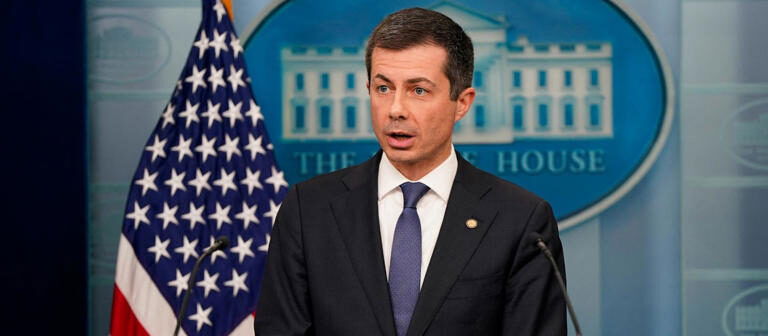
May 9, 2025
Pete Buttigieg Admits He Doesn’t ‘Have It All Figured Out’ With Raising His Adopted Black Children
Pete Buttigieg is speaking candidly on how much he's learning from his experience raising Black adopted children.
Pete Buttigieg shares his experience raising adopted Black children with his husband, Chasten. While the couple works to make their home rooted in love, the former U.S. Secretary of Transportation admitted that he’s still learning and growing within their unique family dynamic.
“We think about it all the time. It’s not like we have it all figured out,” Buttigieg shared on a recent episode of the Flagrant podcast.
Much like other families with a transracial adoption dynamic, Buttigieg receives supportive advice from Black parents when it comes to working with his children’s textured hair.
“They’re like, ‘let me tell you how to do it,’” he said.
But that doesn’t stop the former mayor of South Bend, Indiana, from having honest moments when he questions how well he’s doing as a father.
“You’re constantly asking yourself: ‘How can I be a good dad?’ Now it’s: ‘How can I be a good dad for kids who have a different racial identity than I do? How can I help them navigate that?” Buttigieg shared.
Transracial adoptees growing up with white parents today are having much different experiences than their predecessors, who have been taking to TikTok in recent years to share their childhood trauma from their experiences.
“Our first microaggressions are often with our White adoptive families.” DezaRay Mons, a transracial infant adoptee who goes by @TheOutspokenAdoptee online, told USA Today.
She shares her videos to raise awareness about the challenges she faced growing up in the ’80s and to help ensure that today’s adoptive parents of Black children are better informed and more prepared for the realities of the experience. Joni Schwartz, a white mother who adopted her now-adult Black daughter Rebecca, says she would have approached things differently had she been exposed to more open conversations about race.
“Knowing what I know today, I would have prepared very differently for several reasons … I would have known much more about White privilege and White saviorism, and I wasn’t prepared racially,” Schwartz said.
RELATED CONTENT: Jamaica To Demonetize Old Cotton Banknotes: Here’s What You Need To Know